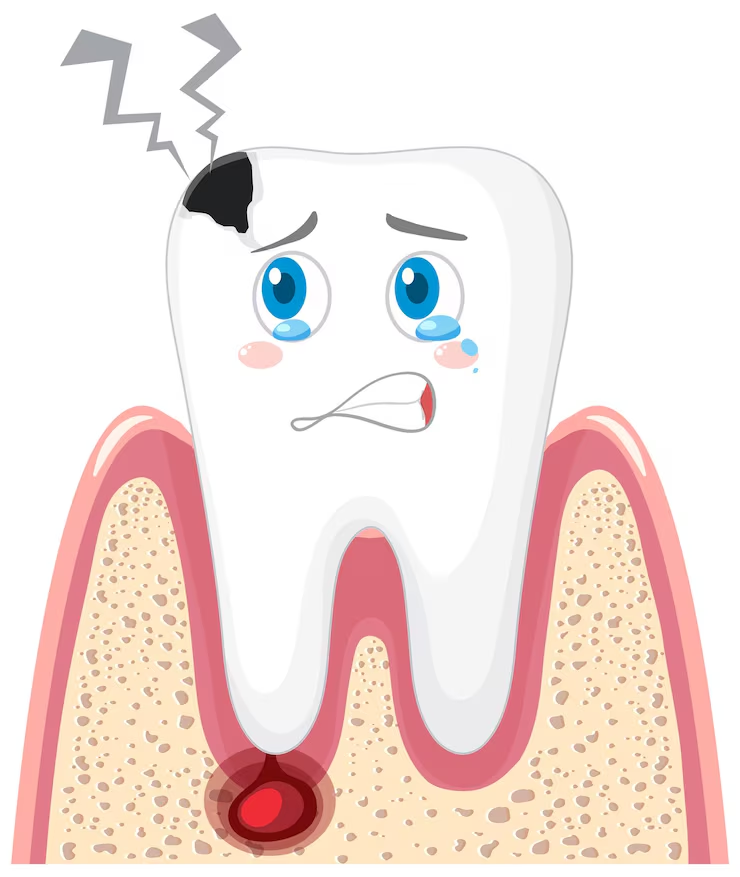By Dr. Hitesh R. Singhavi, Head & Neck Cancer Surgeon
Oral cancer is one of the most common cancers worldwide, with around 3 lakh (300,000) new cases reported every year. It causes nearly 1.5 lakh (150,000) deaths annually. The survival rate depends on how early it’s caught—early-stage cancers have a 80-90% chance of survival over 5 years, while advanced ones drop to just 50-65%.
We know that tobacco, alcohol, and pan (betel nut) chewing are major risk factors. But what about chronic irritation in the mouth caused by ill-fitting dentures, broken teeth, or poor oral hygiene? Can this irritation cause cancer? Let’s dive into what current research says.
What Is Chronic Mucosal Trauma?
Chronic mucosal trauma is a long-term irritation or injury to the lining of your mouth. This can be caused by:
- Loose or poorly fitting dentures
- Broken or sharp teeth
- Overhanging dental fillings
- Poor oral hygiene
The theory is that repeated injury leads to inflammation, which over time may damage DNA and increase the risk of cancer.
What Did the Research Find?
A review of over 700 scientific articles found 22 that studied the link between chronic oral trauma and oral cancer. Here’s what they found:
1. Ill-Fitting Dentures May Increase Cancer Risk
- Studies showed that badly fitting dentures can nearly double the risk of oral cancer.
- The lower jaw and tongue are the most commonly affected areas, especially lateral border of the tongue.
- However, well-fitting dentures used for many years did not increase risk—in fact, they may be safer due to regular dental checkups.
2. Poor Oral Hygiene is Also a Strong Risk Factor
- In some studies, bad oral hygiene was found to be more dangerous than dentures themselves.
- Brushing less frequently increases risk.
3. Sharp/Broken Teeth? Evidence is Weak
- While many patients have sharp or broken teeth near cancer sites, no strong scientific proof links them directly to cancer.
- The data is inconclusive, partly because most studies don’t separate patients with tobacco/alcohol habits from those without.
4. Gender Matters in Non-Tobacco Users
- Among non-addicted (non-smokers/non-chewers) patients, women were more likely to have cancers linked to dentures or oral irritation.
5. Dental Implants? Very Rarely
- A few case reports link cancer near dental implants, but there’s no strong evidence that implants cause cancer.
6. Denture Material and Cancer
- Chemicals in some denture materials can irritate the mouth, but there’s no clear evidence they’re cancer-causing.
7. Dentures and Pre-Cancer Lesions (OPMDs)
- Surprisingly, no solid link has been found between ill-fitting dentures and pre-cancerous conditions like leukoplakia or oral submucous fibrosis.
8. Tumor Stage and Prognosis
- Some early signs suggest cancers caused by trauma may be caught earlier, possibly because the irritation brings people to the doctor sooner. But no clear data exists on their outcomes or survival rates yet.
Key Takeaways for You
- Poorly fitting dentures can hurt your mouth and may increase your risk of cancer—get them checked and fixed.
- Keep your mouth clean—oral hygiene plays a major role in preventing cancer.
- Visit your dentist regularly, especially if you wear dentures or have broken teeth.
- Non-smokers, especially women, should not ignore signs like ulcers, pain, or red/white patches, especially near teeth or dentures.
- Don’t panic if you have dentures—it’s not the denture itself but the trauma it causes that may be harmful.
Dr. Singhavi’s Advice
If you’re wearing dentures, ensure they fit well. If you have broken or sharp teeth irritating your cheek or tongue, get them addressed. Chronic irritation may be preventable, and early diagnosis can save lives.
Let’s spread awareness and take small steps towards preventing oral cancer.
Reference:
- Singhvi HR, Malik A, Chaturvedi P. The Role of Chronic Mucosal Trauma in Oral Cancer: A Review of Literature. Indian J Med Paediatr Oncol. 2017 Jan-Mar;38(1):44-50. doi: 10.4103/0971-5851.203510. PMID: 28469336; PMCID: PMC5398106.

